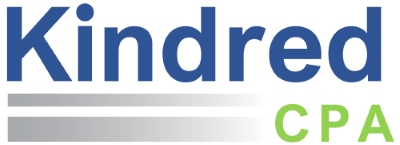To download a handy chart of 2023 dollar limits for employee benefit plans and various tax items, click on the link below: 2023 Dollar…
 Each year, the dollar limits for many employee benefits and tax-related items are updated for inflation. Usually that happens in November for the next calendar year, but the update for HSAs occurs earlier in the year, and here they are:
Each year, the dollar limits for many employee benefits and tax-related items are updated for inflation. Usually that happens in November for the next calendar year, but the update for HSAs occurs earlier in the year, and here they are:
Health Savings Account (HSA) Contributions for 2021
An individual with self-only coverage under a high deductible health plan can contribute up to $3,600 to his/her HSA (increased from $3,550 for 2020).
An individual with family coverage can contribute up to $7,200 (increased from $7,100 for 2020). If you’re age 55 or older, you can contribute an additional $1,000 as a catch up contribution.
High Deductible Health Plan (HDHP) Definition for 2021
An HDHP for 2021 has an annual deductible that is not less than $1,400 for self-only coverage or $2,800 for family coverage (same as 2020 limits). The annual out of pocket expenses cannot exceed $7,000 for self-only coverage or $14,000 for family coverage (these numbers for 2020 are $6,900 and $13,800 respectively).
Why Would You Want to Have a Health Savings Account?
You can only contribute to a health savings account if you’re participating in a high deductible health plan that meets the deductible limits above. Here are some things to think about as you consider an HSA:
- Tax-Free Contributions: Every dollar contributed to your HSA is tax-free. That means your HSA contributions reduce your taxable income and as long as you spend your HSA dollars on qualified medical expenses, you never pay taxes on that money.
- Compare that to your 401(k) or IRA contributions, which are tax-deferred. Your retirement plan contributions reduce your current taxable income, but are taxable when you take out the money. The idea is that you’ll be in a lower tax bracket after retirement, so the tax you ultimately pay will be lower.
- Tax-Free Earnings: Your HSA balance can be invested so it earns interest and investment returns. As long as the account is only spent on medical expenses, both contributions and earnings are tax-free.
- Lower Premiums: Health insurance premiums are lower with a high deductible plan, because you’re taking on more of the first-dollar coverage of your medical costs. But once you’ve funded your HSA up to the maximum, you’re better prepared to handle that deductible – and if you have a healthy year, your HSA just continues to grow year after year.
- Tax Savings: If your company’s cafeteria plan allows it, you can make your HSA contributions pre-tax. This means that in addition to not paying federal (or state, depending on your location) income taxes, you also save FICA/Medicare tax on your HSA contribution.
- Portable: If your HSA is through your company, you can take your account with you if you change jobs.
- Additional Retirement Income: Many people view an HSA as an addition to their retirement plan savings, because it gives you the opportunity to build up a nest egg dedicated to medical expenses after retirement when you’re most likely to need it. That allows you to use your 401(k) or IRA to cover non-medical expenses.



